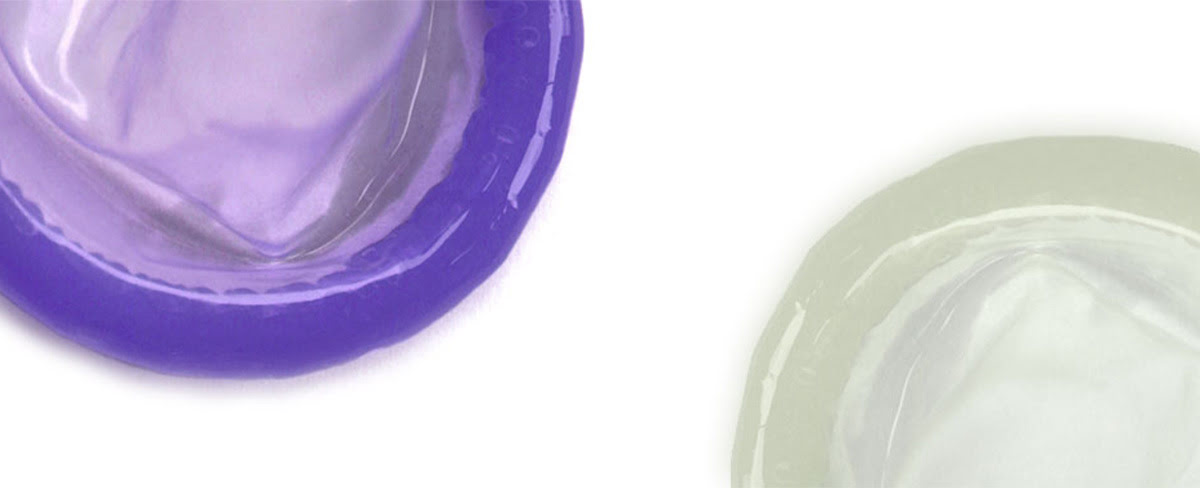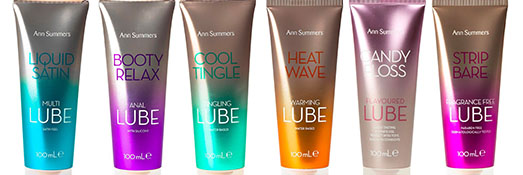
Guide to Safe Sex by Ann Summers
It never hurts to brush up on the basics so, we’ve created our guide to having safe sex and the importance of communication before, during and after sex.
Protection
Safe sex 101 – condoms. They don't just protect against pregnancy – they're essential for preventing STIs. There are plenty of different kinds, but the most important thing is ensuring that they're the right fit.
Boys, you might like to think you're endowed enough to carry an XL around in your wallet, but let's be real. If they don't fit nice and snugly, you're putting you and your partner at risk.
Condoms come in a range of different thicknesses, but it doesn't mean they're more likely to break if you're using an Extra Thin brand. Again, the most important thing is to make sure it's on correctly.
How to use a condom
- Carefully open the foil packaging, avoiding any tears or rips in the condom.
- Hold the tip of the condom between your thumb and index finger to squeeze out any air (the rolled up bit should be on the outside).
- Place the condom over the tip of the penis, whilst still squeezing the top, roll it down the whole length slowly.
- If the condom doesn’t unroll, it may be insight out – so chuck it away and start with a new one. The same goes for if it rips, always start a fresh one.
For an in-depth look at condoms visit this handy NHS guide.
More information on the effectiveness of condoms can be found here.
Good Sexual Hygiene
Keeping clean might be the furthest thing from your mind when you're getting down and dirty, but trust us – you don't want to neglect hygiene. Our number one top tip in this area? If it is clear to you that someone is neglecting their hygiene, avoid being intimate with them, as bad sexual hygiene can lead to a greater risk of cold sores and other sexually transmitted diseases. Make sure to keep yourself clean, too. But don't go too far – we're not a fan of vaginal douches. They scrub out the good, natural bacteria which can make things worse in the long term.
Cleaning sex toys
Even if you only bring out the toys when you're on your own, it's really important to make sure you keep them clean. Silicone, glass and metal toys can generally be cleaned with a bit of warm water and mild soap or, better yet, cleaning wipes. Make sure you only use wipes designed for toys, as using regular wet wipes could actually damage your toys. This goes double for any plastic or rubber toys that aren't made of silicone. The surfaces of these materials are porous (there's tiny holes in it), which means fluids can soak in and provide an environment for bacteria to grow. Use wipes for these toys, or better yet, use them with a condom.
Whether you’re sharing with a partner or solo, don't just shove toys in your drawer – keep them in a case or bag to make sure they stay clean.
Avoid UTIs
Women are about ten times more likely than men to get a urinary tract infection (UTI). Sex is one of the most common causes of UTIs – a really unpleasant side-effect, if you ask us. Fortunately, keeping the risks to a minimum is fairly simple – using a condom, and cleaning your genitals before and after sex, for example. Pretty basic stuff.
But the most important thing is to get up and pee straight after sex. Resist the urge to lay there and bask – the pain's not worth it. You can bask later.
The anal question
Anal sex is no less hygienic than any other kind – provided you do it right. You can read our anal sex guide for more info, but here's a quick crash course on the safety basics:
- Make sure you stay clean. A normal bowel movement and thorough cleaning is usually enough, but you can use a douche if you're worried.
- Wear a condom. There's a real risk of STIs, as well as other bacteria.
- Don't mix it up without cleaning up. Switching from anal to oral or vaginal sex without changing condoms is just about the riskiest thing you can do.
Enhancement
Safe words
Communicating before, during and after sex is an integral part of having safe sex, which is where safe words come into play. A safe word is basically a word used when you or your partner wants to stop. They're a big part of bondage, spanking and BDSM play, where pretending to put up a fight is all part of the fun, and you can't necessarily count on a cry of 'stop' to mean what it says.
Read our introduction to BDSM to learn more about safe words – but they're not just for the kinkier side of things. Having one big, noticeable word or signal that brings everything to a complete stop no matter what can be useful whatever you're doing. If you're feeling uncomfortable, don't be afraid to break it out.
Lube up
Our advice for just about everything. Lube up – it doesn't just make sex feel amazing, it also reduces friction, which reduces the risk of any tearing. Using plenty of lube means you can go harder, for longer, with way less discomfort than a dry run.
But you need to make sure you're using the right kind. If you're using latex-based condoms, make sure you only use water-based or silicone-based lubes. Oil-based lubes, or more DIY solutions like baby oil or coconut oil, can degrade the latex and cause breakages.
If you're using lube with toys, make sure you're using a type that matches the material. Water-based lube is fine with most toys, but if you're using a silicone toy, make sure you don't use silicone-based lube, as this can degrade the material in the toy, which means it's more likely that bacteria will be able to develop.
For in-depth advice on how to use lube - read our guide!
Stock up
Nightmare scenario – it's date night for you and your partner, or you've brought someone new home for the first time, and you've run out of condoms and lube. Remember to stock up on our sex essentials, so you're never caught out. You're welcome.
Hopefully you're now feeling educated & excited. We recommend browsing our sex essentials categories to find something that really hits the spot.
-

Talking About Sex with Your Partner
Having conversations about sex with your partner can feel like a difficult thing to do but could hold the key to an amazing sex life. Find out how to approach it here.
-

How to Use Lube – A Complete Guide
Find out everything you need to know about when, how and why to use lube and uncover a world of pleasure. Read the Ann Summers lube guide now.
-

A Guide to Sex Toys for Couples
Enhance your sex by experimenting with couples' sex toys. Ann Summers are here to help introduce them to your relationship. Read here.
your first order
Stay in the loop on all things Ann Summers:
Updates on new arrivals, inspiration, offers and events!
*Discount only available on full price products and 5% off discounted products
By inputting your information, you agree that we can use it in accordance with our Privacy Policy. You are able to unsubscribe from marketing at any time. By proceeding you agree to our Terms and Conditions.
You must be over 18 to join our mailing list.
By inputting your information, you agree that we can use it in accordance with our Privacy Policy. You are able to unsubscribe from marketing at any time. By proceeding you agree to our Terms and Conditions.
You must be over 18 to join our mailing list.
Sign up to emails and get up to 15% OFF your first order

*15% Discount only available on full price products and 5% off discounted products
Stay in the loop on all things Ann Summers: Updates on new arrivals, inspiration, offers and events!
By inputting your information, you agree that we can use it in accordance with our Privacy Policy. You are able to unsubscribe from marketing at any time. By proceeding you agree to our Terms and Conditions.
You must be over 18 to join our mailing list.
Our Benefits
Free Delivery over £50
Spend £50 or more and enjoy free UK Standard Delivery (arrives in 3 working days).
Prefer something faster or more flexible? Next Day, Click & Collect & more at checkout.
Buy Now, Pay Later
Buy Now & Pay Later with our payment partners Klarna, Paypal, and Clearpay at checkout. Get the product you want, when you want it.
Free Returns
Changed your mind? Return eligible items free of charge within 30 days.
Discreet Delivery
Your order will always arrive in plain, unbranded packaging from “AS Ltd”.